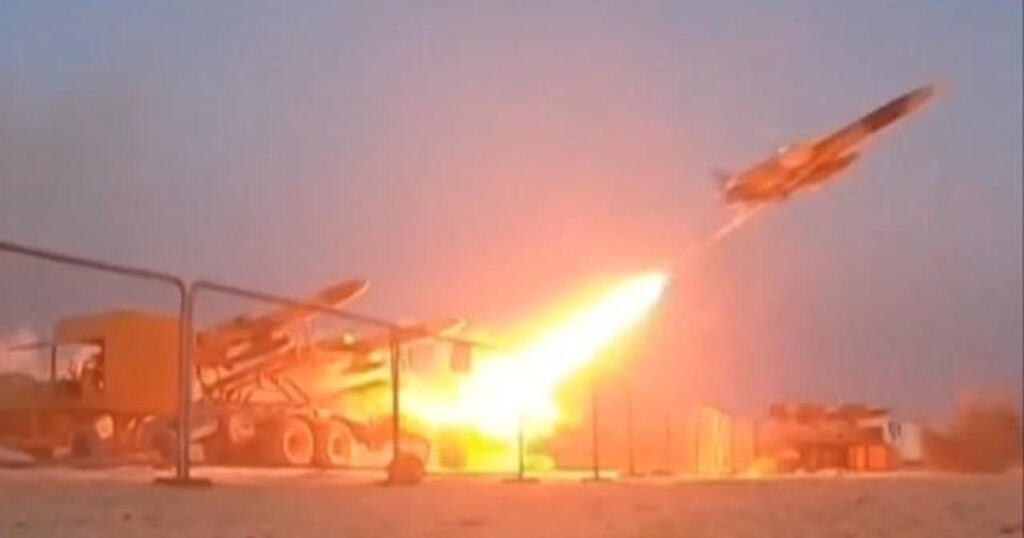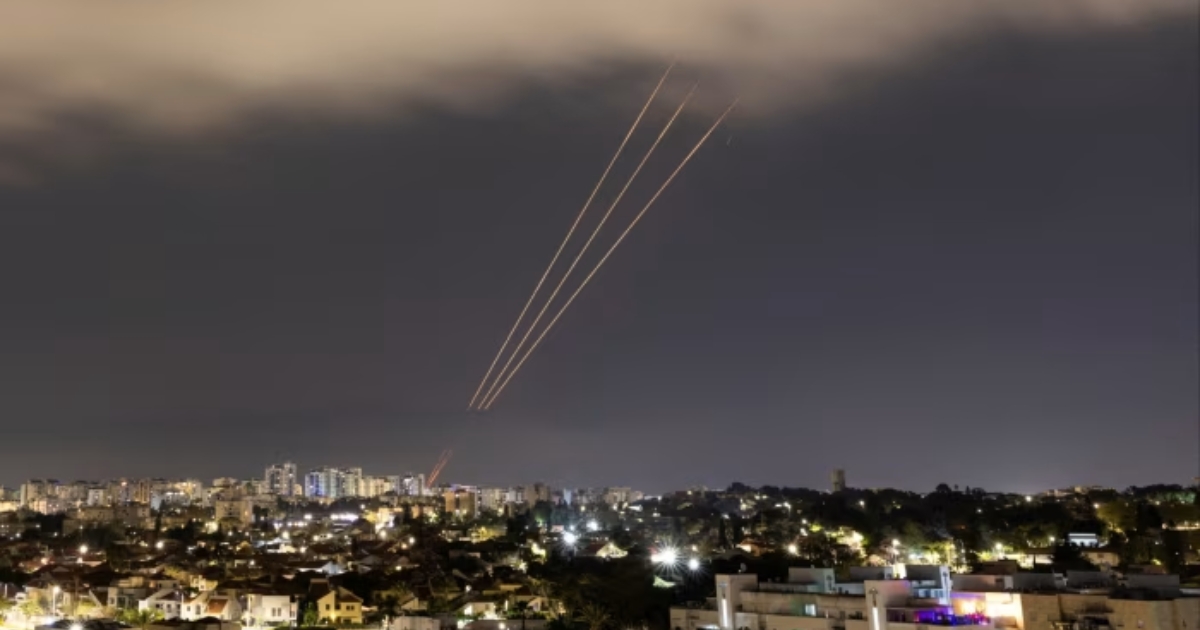Sunday’s overnight deluge of drones and missiles towards Israel ushered in a fresh era of unpredictability, conflict, and tension in the Middle East.
In retaliation for what was believed to be an Israeli bombardment against the Iranian consulate in Damascus, Syria, earlier this month, Iran initiated the unprecedented assault.
It closed a new chapter in a long-standing dispute between the two nations that has escalated steadily since October of last year, when Israel declared war on Hamas.
Ahead of a potential escalation into open hostilities, Israel is confronted with entreaties from its allies to adopt a de-escalation strategy rather than retreat to an uncertain future.
In what way did Iran attack Israel and how?
Overnight, in a massive aerial assault, Israel was the target of over 300 projectiles, including over 120 ballistic missiles and approximately 170 drones. Daniel Hagari, spokesman for the Israel Defense Forces (IDF), estimates that around 350 missiles were launched from Hezbollah in Lebanon, Iran, Iraq, and Yemen.
According to the Israeli military, however, “99%” of the projectiles were intercepted by Israeli aerial defense systems and its allies, with only a minority reaching Israeli territory.
An Iranian army official stated on Sunday that the Nevatim airbase was the objective of Tehran’s attack, claiming that this is where Israel launched its attack on the Iranian consulate in early April. Hagari stated that missiles from Iran that successfully reached Israel impacted an airbase in the southern region of the country, causing minimal structural damage. Hagari added that the base is operational and continues to function despite the bombardment, as aircraft continue to utilize it.
Sunday, a senior United States military official informed reporters that the United States has determined “there is no significant damage within Israel.”
During the attack, ships of the United States in the eastern Mediterranean Sea fired down between four and six Iranian ballistic missiles, and regional aircraft intercepted over seventy Iranian unidirectional UAVs en route to Israel. One ballistic missile was intercepted by a US Army Patriot missile battery in the vicinity of Erbil, Iraq, according to the official.
In reaction to the Iranian strike, how have Israel and its allies behaved?
Israel condemned the unprecedented attacks while lauding the response of its military.
Defense Minister Yoav Gallant stated that the assault had been “unprecedentedly thwarted,” but added that “every scenario must be anticipated.” Benjamin Netanyahu, the prime minister of Israel, stated in his initial remarks, “We have intercepted and contained the situation. “By working together, we will prevail.”
However, Israel’s Western allies urged the nation to de-escalate the crisis before reacting in a manner that could escalate the situation into full-scale conflict.
The United States will not engage in offensive operations against Iran, according to a senior White House administration official who spoke with Israeli Prime Minister Netanyahu via telephone. Biden made this plain to Netanyahu, according to CNN.
Biden advised Netanyahu to perceive Saturday night’s events as a “victory” due to the fact that Iran’s assaults had been largely fruitless and showcased Israel’s “remarkable capability to repel and triumph over even unprecedented assaults.”
The G7 leaders issued a joint statement condemning the Iranian attack, which they claimed “risks inciting an uncontrollable regional escalation,” following a virtual meeting on Sunday.
They stated, “We demand an end to the attacks carried out by Iran and its proxies, and we are prepared to take additional actions now and in the future in response to additional destabilizing initiatives.”
What will happen next?

The immediate course of action will be determined by the decisions rendered by Israel’s War Cabinet.
Benny Gantz, one of the members, stated that Israel will “transact a price with Iran at a time and in a manner that meet our needs.”
Hardliners in the Israeli government have demanded decisive action. Bezalel Smotrich, the minister of finance, implored an Israeli response that would “resonate throughout the Middle East,” while Itamar Ben Gvir, the minister of national security, advised Israel to “go crazy.”
According to an Israeli official, an hours-long war cabinet meeting on Sunday concluded without a decision regarding Israel’s response.
The official stated that the war cabinet is determined to respond but has not yet determined the timetable and scope. A critical predicament confronting the cabinet pertains to the determination of the optimal response time for Israel. The Israeli military has been entrusted with developing supplementary response options, according to the official.
A Biden administration senior told reporters on Sunday that Israel informed the United States that it does not “anticipate a significant escalation with Iran.”
“They are attempting to defend and protect themselves,” the official explained.
Iran declared on Sunday that a “new equation” had been established in its antagonistic relationship with Israel, and threatened a “much larger” assault on the country should Netanyahu opt to retaliate.
Commandant of the Islamic Revolutionary Guard Corps (IRGC) Hossein Salami stated on Iranian state television, “We have decided to create a new equation, which is that if the Zionist regime attacks our interests, assets, personalities, and citizens in the future, wherever and at any time, we will retaliate.” Iran appellates to the “Zionist regime” when discussing Israel.


